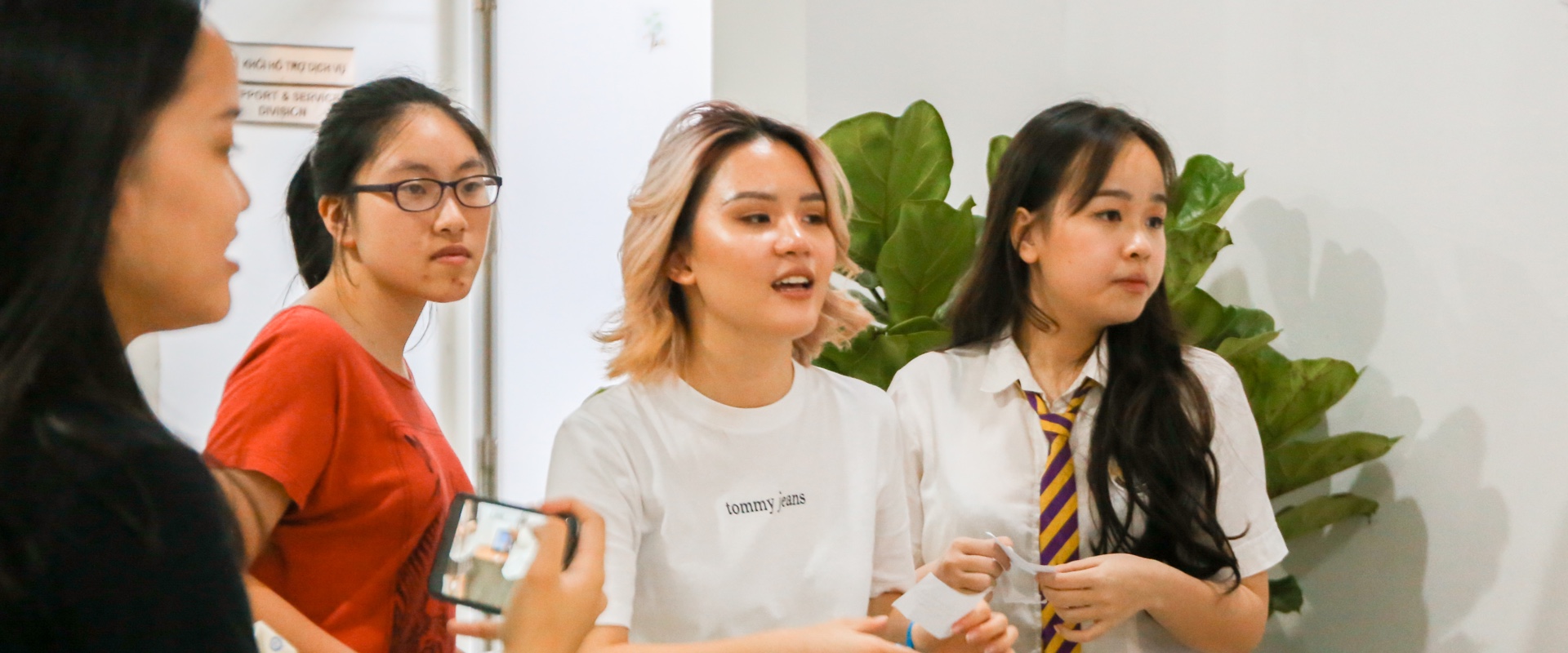
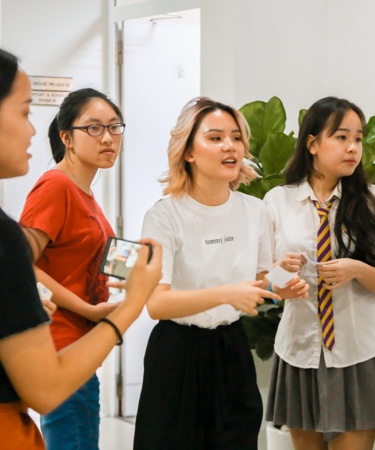
English
Curriculum
The English curriculum is based on the Cognitive Academic Learning Proficiency – CALP approach. Throughout the program from Primary to high school, students develop integrated and comprehensive four language skills (Listening – Speaking – Reading – Writing) instead of focusing on only a few language skills such as pronunciation or common communication skill.
At the Olympia Schools, we believe that language is not only about communication and standardized language examinations but the need to have language skills as a tool to accumulate knowledge in various areas. Olympia’s English curriculum focuses on establishing a solid foundation for students to study at higher education, as well as to integrate and surpass any educational environment and occupations in the world.
BICS (Basic Interpersonal Communication Skills) — including common social communication skill (1-2 years)
CALP (Cognitive Academic Learning Proficiency) — including academic knowledge, cognitive development and covering all necessary skills (5-7 years)
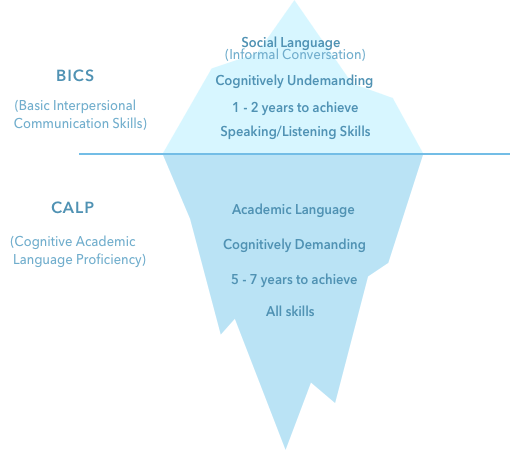
Methodology

CLIL
CLIL (Content and Language Integrated Project): Integrating language and academic knowledge.

Inquiry – Based Teaching
Students determine their desired learning methods and lesson content. With the guidance and consultation from teachers, students will research, discuss and come to a final conclusion.

Experiential learning
Students have chances to interact with every day’s matters through experiential learning, so that they can learn from practical lessons.

Visual thinking
Teaching using illustrations increases students’ imagination and thinking capabilities, which help them understand the lessons in realistic ways.
Foundation of Olympia’s English program
CEFR - Common European Framework of Reference for Languages

Students will develop 4 fundamental language skills (Listening, Reading, Writing, Speaking) with progressive difficulties in accordance with students’ age and levels. These 4 skills are integrated in every lesson from primary school to high school.
For example: Unit 2 – Topic: Family – Grade 1
Reading
Academic essay from textbook (70-100 words)
Listening
2 audio files from textbook (approx. 30 seconds/file)
Writing
1-2 sentences about family members
Speaking
Speak and answer questions about family members, how many people in the family.
The content from basic language skills lessons is the combination of both academic and social content. Students at The Olympia Schools can be qualified in any examination with the scores and achievements framework below
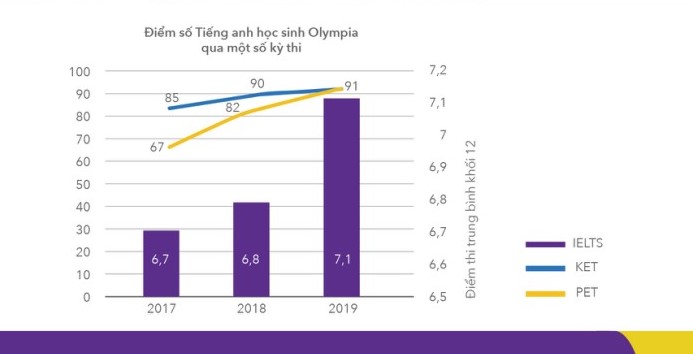
21 st century’s skill framework

Students can only use English as a basic communication device without the capability of thinking using English or putting English into use in many complex environments if the curriculum focuses too much on “The outer layer” of language without paying attention to the internal abilities. Our English curriculum concentrates on the core value of language, completes more complex language skill set, which are:
- Communication skill (conversations, debate, presentation)
- Coordinating skill (Taking responsibility, project management, problem solving)
- TCritical thinking (Idea evaluation, debating and opinion, synthesizing arguments, systematic thinking, etc)
- Creativity (Promoting creative activities using curiosity, developing innovation and creativity in studying through projects, group works)
- Content (Research and evaluation, information management, creating information to prove knowledge and new thinking)
Lifelong learning

Lifelong learning is one of the signatures of our English program with a goal of developing necessary skills for students in both current environment and future life, for sustainable development. This skill focuses on 4 main targets.
- Learn to know: students are able to fully understand learning tools, research actively instead of learning in a passive way.
- Learn to work: Prepare students with necessary skills to step into the ever-changing world in the future.
- Learn to live: Students can understand more about themselves, answer the questions about life, have a multi-dimensional perspective about themselves and the world.
- Learn to cooperate: Students understand the surrounding life and communities, economic, social, cultural matters. These skills are shown through social projects, communal activities, students’ clubs.
News about
English Curriculum
-
Book Translation Project: From Manuscripts to a Journey of Understanding Emotions with Olympia’s 10th Graders
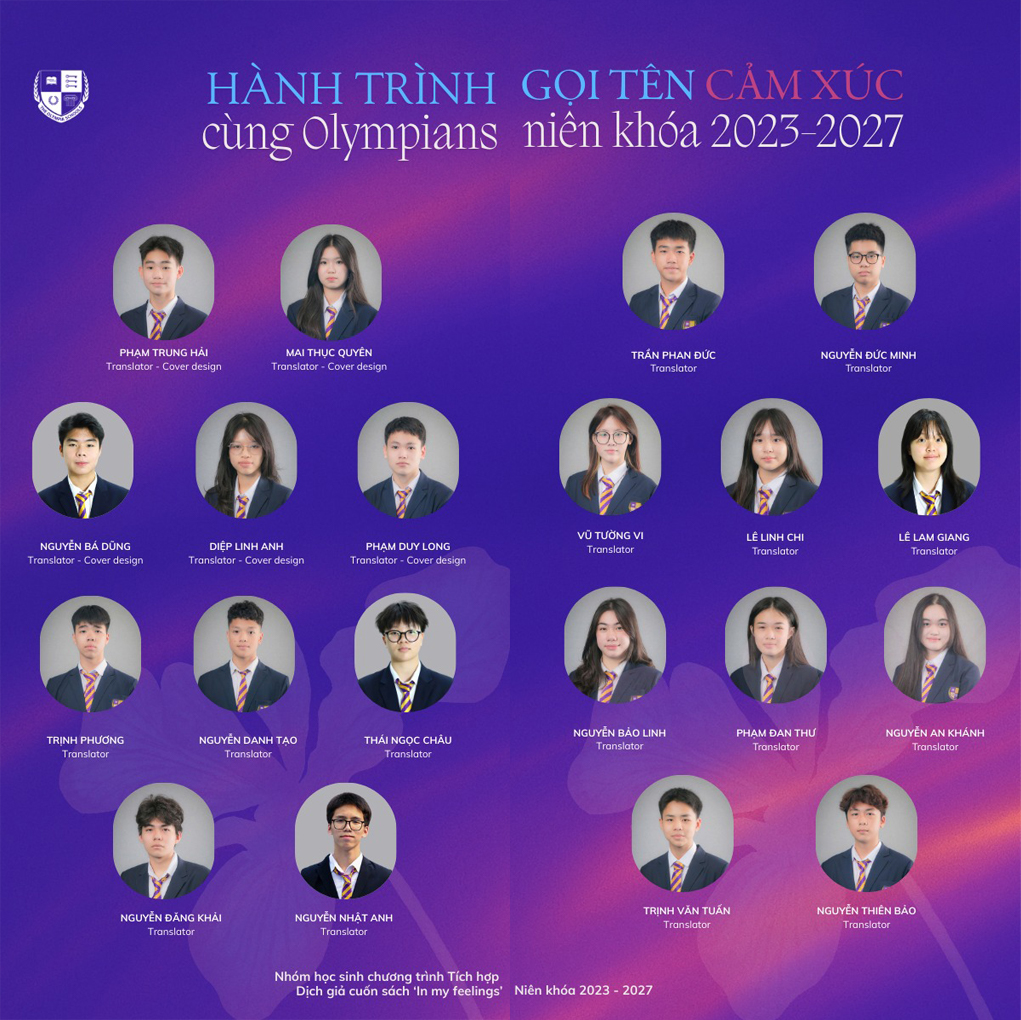
-
TOK | IB - DP: Olympians enhance critical thinking through TOK
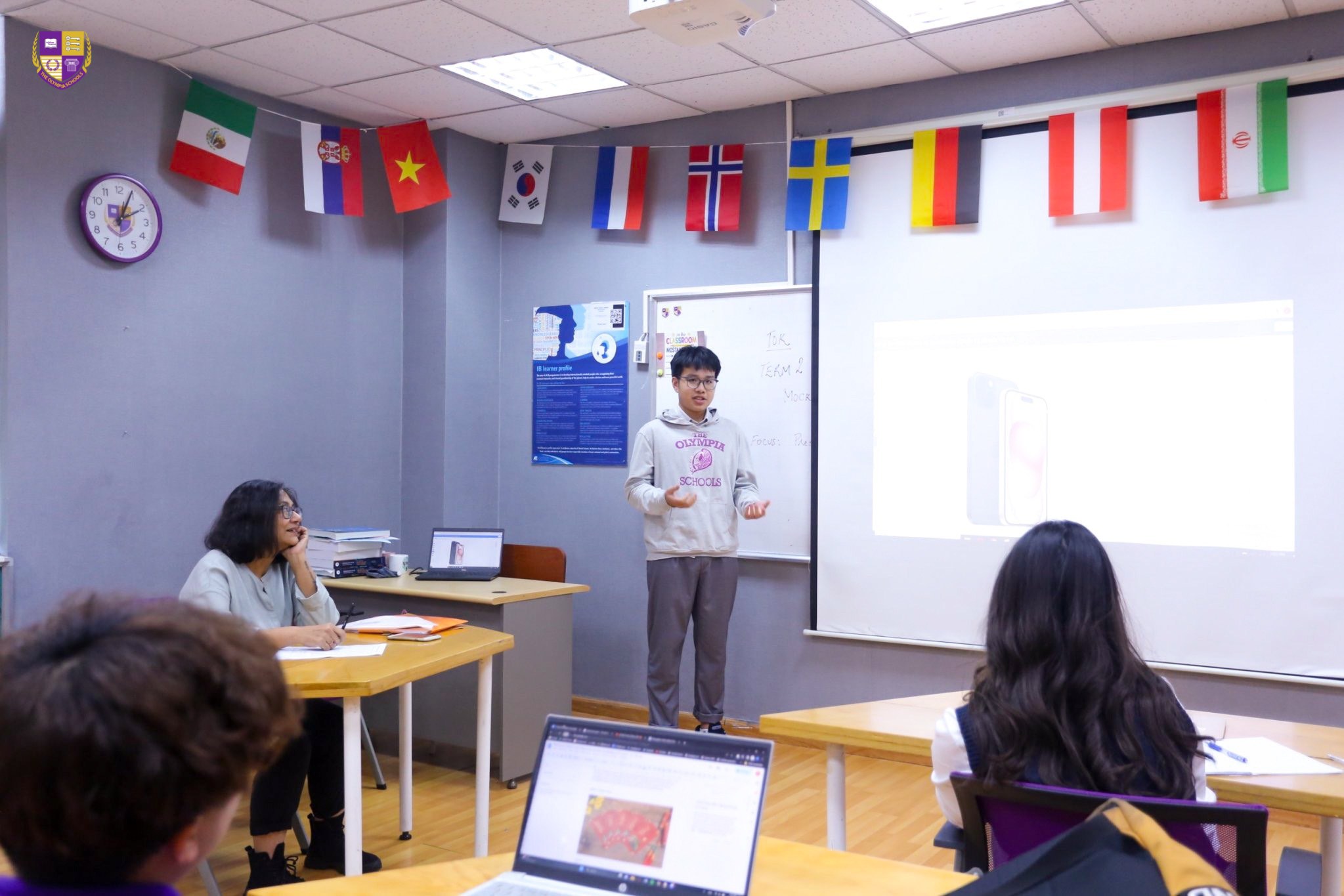
-
Interesting highlights awaiting high school Olympians is in the English program for the 2023-2024 academic year
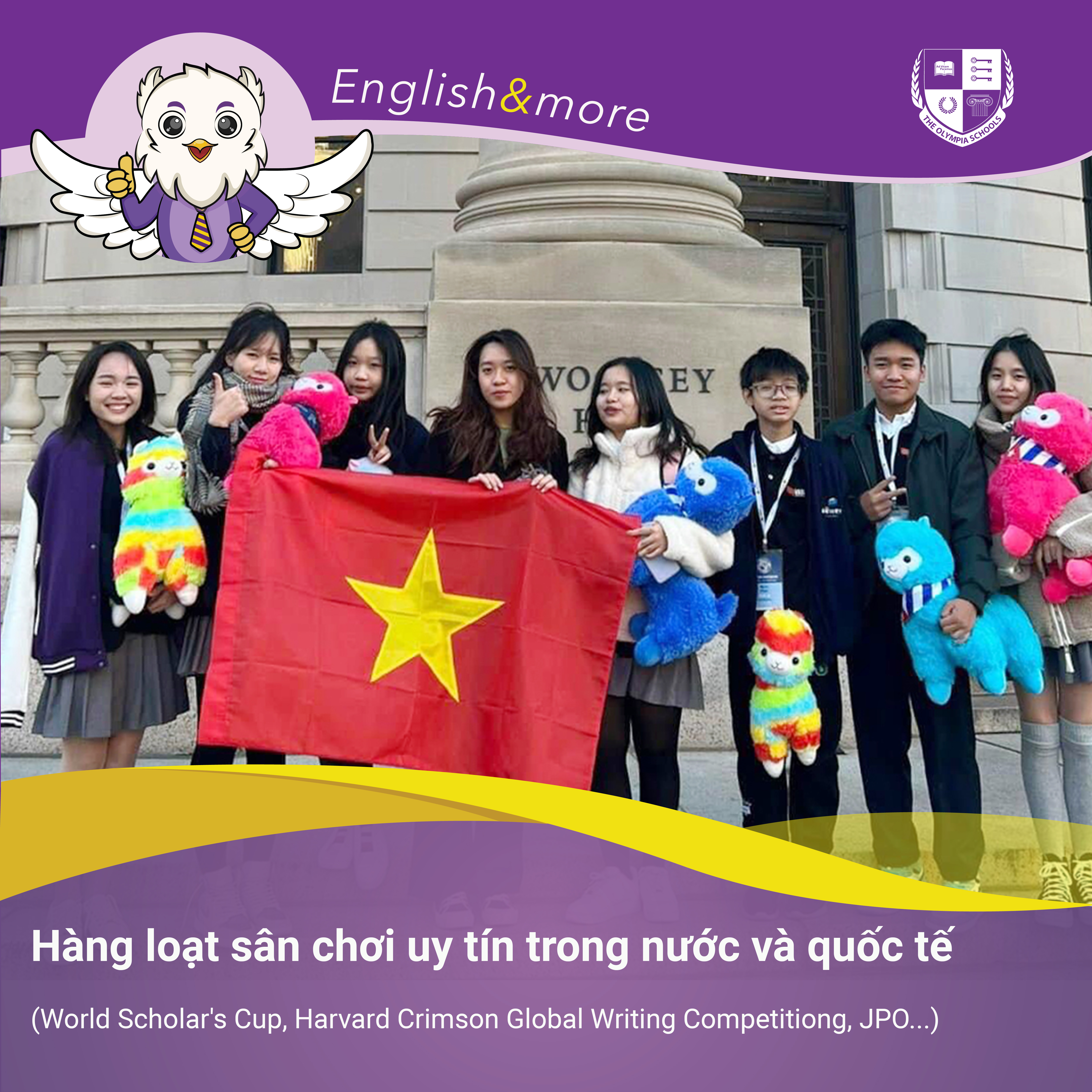
-
[Viet Nam News] Students shine in charity production of Les Miserables
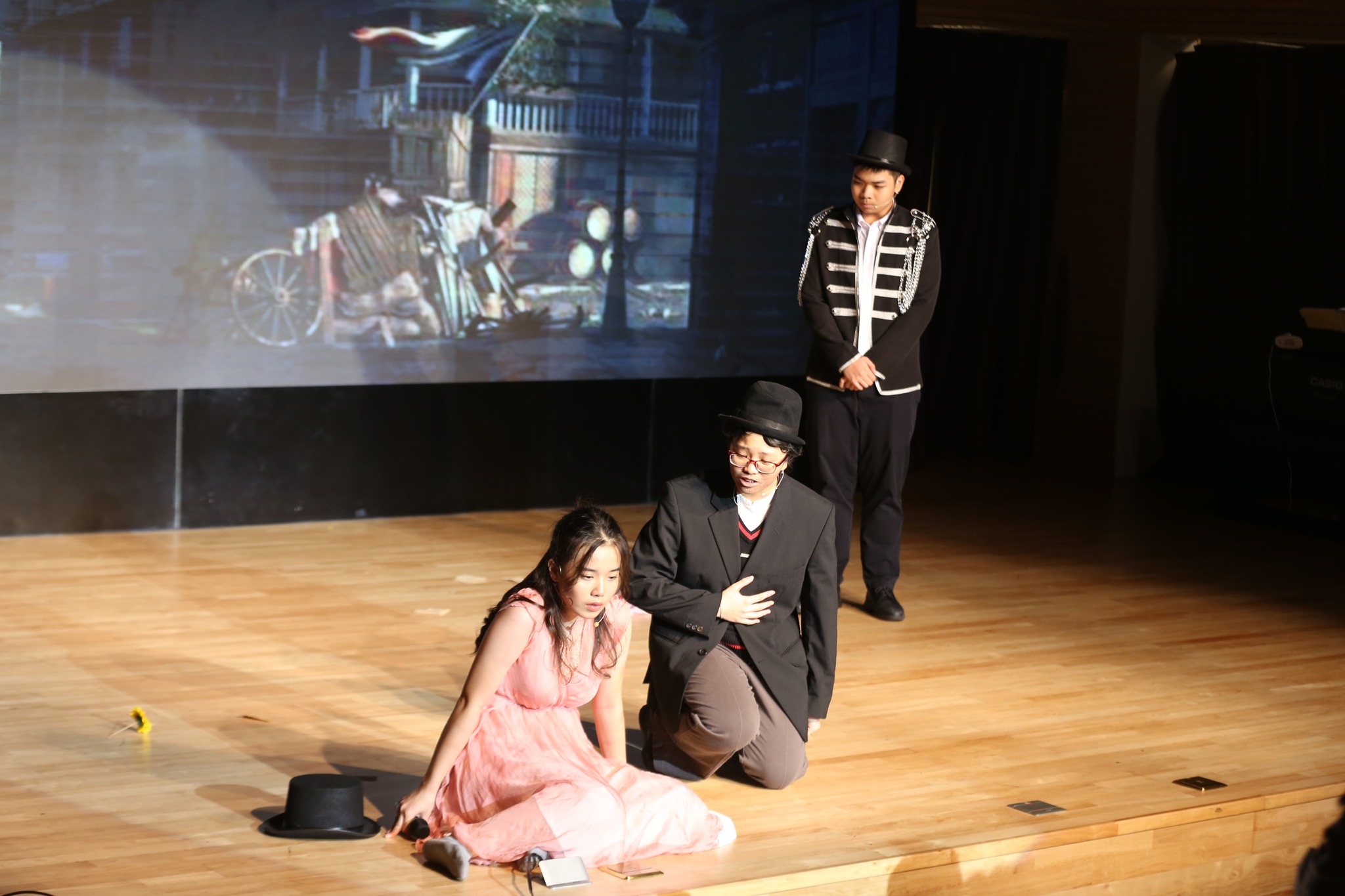
-
OLMUN 2023: Time traveling, Olympians discussed important political - social issues on global scale















